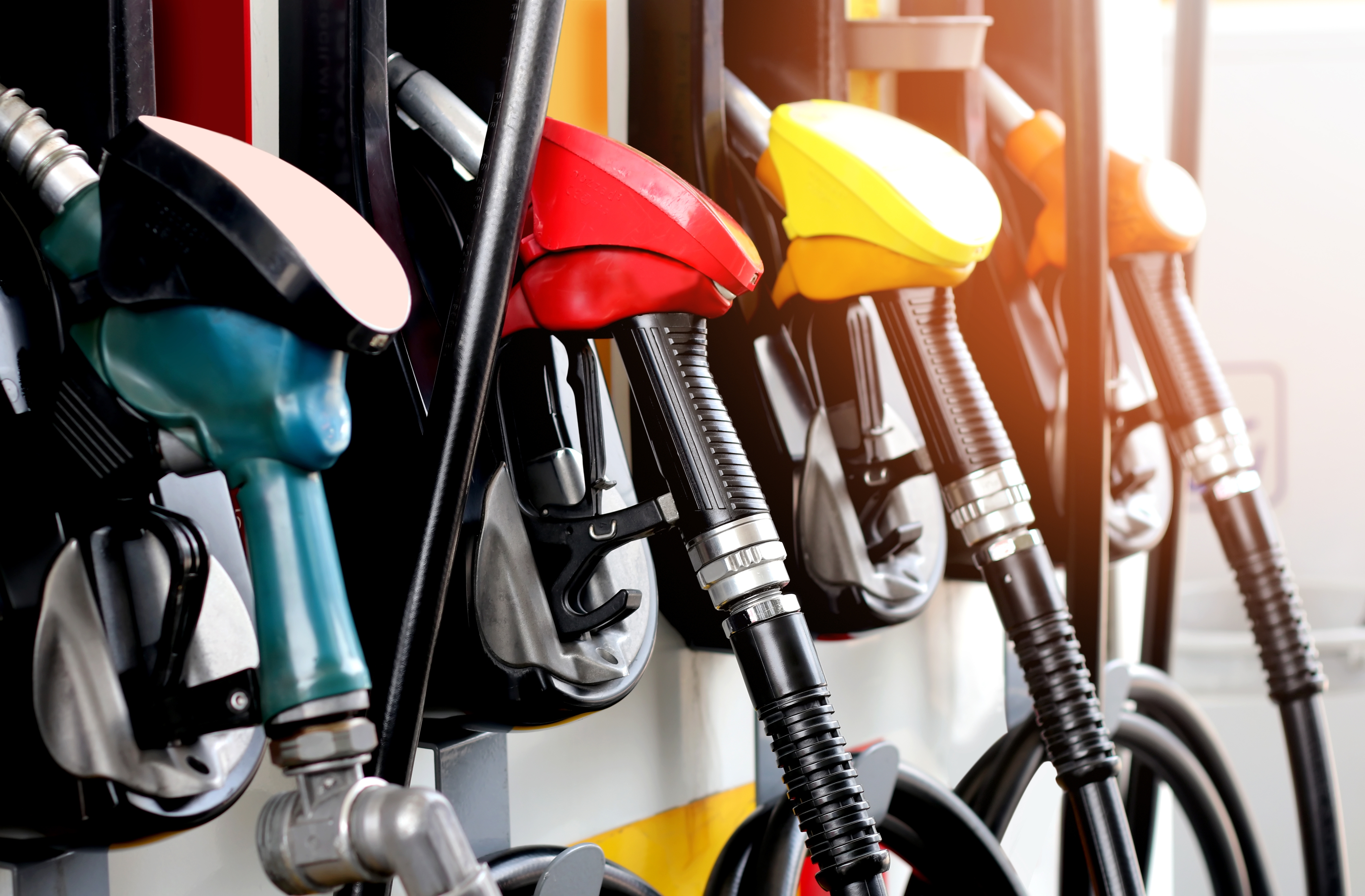
Miranda Blake
Brandstofkaarten in de transportsector - hoe SNAP het leven van een wagenpark vereenvoudigt
Gemaakt: 20-11-2024
•
Bijgewerkt: 20-11-2024
De behoefte aan efficiënte fleet management oplossingen is nog nooit zo groot geweest. SNAP Account is een krachtig alternatief voor traditionele tankkaarten en biedt een uitgebreid, gebruiksvriendelijk platform dat betalingen vereenvoudigt en de operationele efficiëntie verbetert. Door de belangrijkste pijnpunten aan te pakken, zoals kostenbeheersing, administratieve lasten en chauffeurstevredenheid, maken we de weg vrij voor een nieuw tijdperk in wagenparkbeheer.
Uitgebreide betalingsoplossing
SNAP Account is een alles-in-één betaaloplossing voor wagenparken die een revolutie teweegbrengt in de manier waarop bestuurders verschillende uitgaven afhandelen. Door alleen het kenteken van het voertuig te gebruiken, kunnen ze voor verschillende diensten betalen, waaronder:
- Parkeren: Toegang tot meer dan 380 speciale truckparkings in heel Europa zorgt ervoor dat ze altijd een veilige plek hebben om te rusten.
- Wassen: Met meer dan 230 beschikbare faciliteiten is het schoonhouden van voertuigen een fluitje van een cent.
- Brandstof: Chauffeurs kunnen bij partnerstations tanken, wat de werkzaamheden stroomlijnt.
- Tolgelden voor overtochten: Dankzij geautomatiseerde betalingen voor tolwegen is het niet langer nodig om contant geld te beheren.
We verminderen de last van het dragen van meerdere kaarten of contant geld aanzienlijk, omdat onze software deze verschillende betalingen in één systeem consolideert.
Vereenvoudigde administratie
Voor wagenparkbeheerders kunnen de taken in verband met tankkaarten overweldigend zijn. Gelukkig maakt SNAP Account deze processen op verschillende manieren eenvoudig:
- Enkele factuur: Alle transacties worden samengevoegd op één factuur, waardoor het papierwerk en de administratieve overhead drastisch worden verminderd.
- Geautomatiseerd bijhouden van gegevens: Deze functie vereenvoudigt belastingrapportage en financieel beheer, waardoor kostbare tijd wordt bespaard.
- Vrachtwagenbeheer: Je kunt zoveel voertuigen toevoegen als je nodig hebt en ze groeperen op basis van type of bestemming.
Dergelijke automatisering en centralisatie zorgen ervoor dat wagenparkbeheerders zich kunnen richten op strategische beslissingen in plaats van te verzanden in papierwerk.
Verbeterde kostenbeheersing
SNAP Account biedt krachtige tools om uitgaven te optimaliseren:
Uitgavenlimieten: Wagenparkbeheerders kunnen beperkingen instellen en aankopen autoriseren, zodat uitgaven binnen het budget blijven. * Kortingen: Exclusieve tarieven bij ons partner tankstation, Certas Energy, zorgen voor aanzienlijke besparingen. Geen opstartkosten: In tegenstelling tot traditionele brandstofkaartsystemen zijn er geen initiële opstart- of abonnementskosten, waardoor het eenvoudiger is om aan de slag te gaan. Geen verborgen kosten: Wij elimineren de toeslagen die tankkaartbedrijven gewoonlijk aanrekenen voor truckstopservices, zodat de prijzen transparant zijn.
Met deze functies kunnen bedrijven hun brandstof- en servicekosten effectief beheren, wat leidt tot een betere winstgevendheid.
Benieuwd hoe anderen profiteren van SNAP? [Lees onze casestudy] (https://snapacc.com/newsroom/efficiency-on-the-road-how-delintra-sp-zoo-are-optimising-their-fleet-with-snap/).
SNAP-kaart] (https://prodsnapstorage.blob.core.windows.net/public-news/45a5f9f2-3d3c-4406-97ee-9819de91d41c-SNAP%20map.jpg)
Voordelen voor de bestuurder
SNAP Account is ontworpen met de bestuurder in gedachten en biedt tal van voordelen die hun ervaring op de weg verbeteren:
- Gestroomlijnde betalingen: Vergeet het gegoochel met meerdere kaarten of contant geld. De eenvoud van het gebruik van alleen het kenteken van het voertuig voor transacties is een game changer.
- Uitgebreid netwerk: Met toegang tot meer dan 600 servicepartners in heel Europa kunnen ze gemakkelijk de diensten vinden die ze nodig hebben. Mogelijkheid tot vooraf reserveren:* Met de intruck app kunnen vrachtwagenparkeerplaatsen gemakkelijk worden gereserveerd, zodat chauffeurs hun plaatsen vooraf kunnen veiligstellen.
Door het leven op de weg te vereenvoudigen, verbeteren we de efficiëntie van het wagenpark en vergroten we de tevredenheid van de chauffeurs, waardoor we voor veel operators de beste keuze zijn.
Beveiliging en fraudepreventie
In een sector waar beveiliging van het grootste belang is, beschikt SNAP Account over verschillende robuuste functies om de bedrijfsmiddelen van het wagenpark te beschermen:
- Geregistreerde nummerplaten: Elke transactie is gebaseerd op een geregistreerde nummerplaat, wat ervoor zorgt dat alleen geautoriseerd personeel en voertuigen betalingen kunnen doen.
- Bestedingscontroles: Managers kunnen limieten instellen, waardoor het risico op misbruik afneemt.
- Veilig parkeren: Veel partnerlocaties bieden verbeterde beveiligingsfuncties, waardoor chauffeurs met een gerust hart kunnen parkeren.
Deze maatregelen zorgen samen voor een veilige omgeving voor wagenparkactiviteiten, waarbij zowel de voertuigen als de financiën worden beschermd.
De evolutie van tankkaarten
Brandstofkaarten zijn al jaren een hoeksteen van wagenparkbeheer, maar traditionele brandstofkaarten gaan vaak gepaard met verborgen kosten, beperkte serviceopties en omslachtige administratieve processen. SNAP Fuel](https://snapacc.com/snap-fuel/) daarentegen pakt deze tekortkomingen aan door een moderne, uitgebreide oplossing te bieden die voldoet aan de eisen van hedendaags wagenparkbeheer.
Belangrijkste verschillen tussen SNAP en standaard tankpassen
Belangrijke verschillen tussen SNAP en standaard tankkaarten](https://prodsnapstorage.blob.core.windows.net/public-news/0b050d22-dcfa-444d-8733-971f9dd4e68a-SNAP%20Account%20vs%20conventional%20fuel%20cards.png)
Getuigenissen van klanten
Benieuwd hoe anderen hebben geprofiteerd van SNAP Account? Dit is wat enkele wagenparkbeheerders te zeggen hebben:
- Fenwick Haulage: "SNAP heeft onze activiteiten veranderd. Geen gedoe meer met bonnetjes; onze chauffeurs gebruiken gewoon hun registratie. Het is een game changer."
- L Cunningham & Daughter Haulage: "De flexibiliteit die SNAP biedt is van onschatbare waarde. Onze chauffeurs kunnen parkeren zonder zich zorgen te hoeven maken over vooruitbetalingen en de facturering is naadloos."
- Wincanton: "Het gebruiksgemak is ongeëvenaard. Onze chauffeurs kunnen parkeren reserveren en betalen zonder contant geld of kaarten nodig te hebben, wat hun werk veel eenvoudiger maakt."
- Jack Richards: "SNAP heeft onze efficiëntie verbeterd en onze kosten aanzienlijk verlaagd. Het is een essentieel hulpmiddel voor ons wagenpark."
Als u de vruchten wilt plukken voor uw eigen wagenparkactiviteiten, neem dan contact op door te bellen naar +44 (0)1603 777242.


